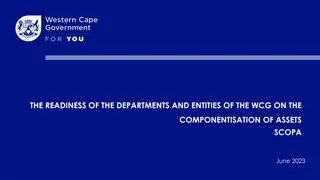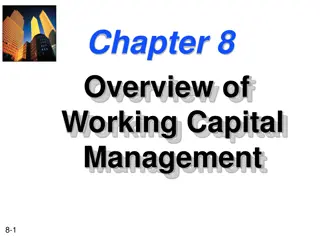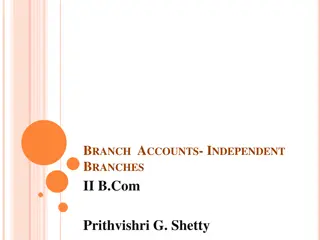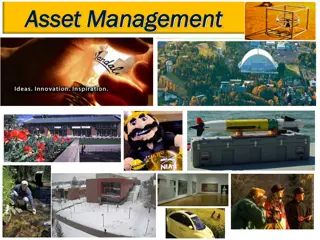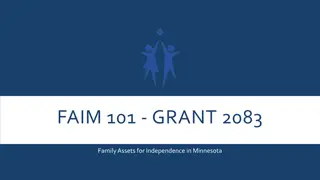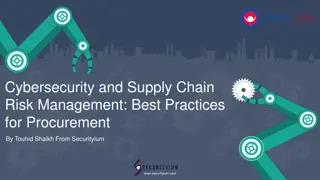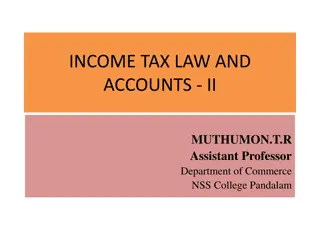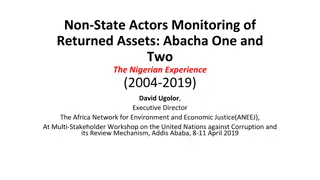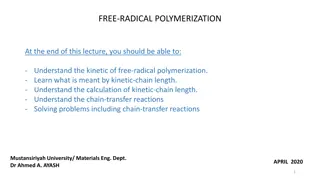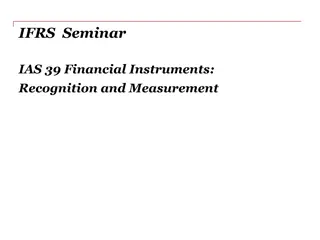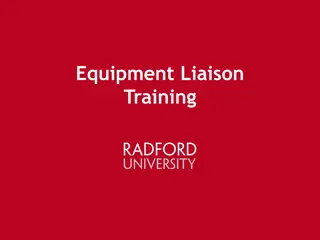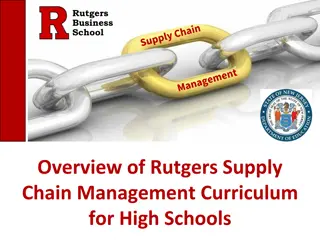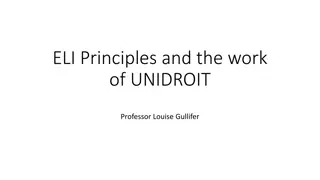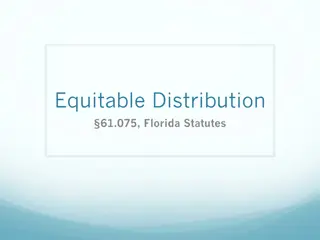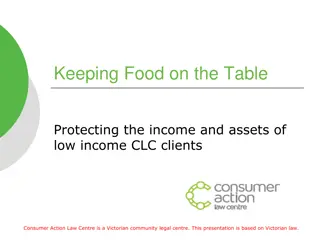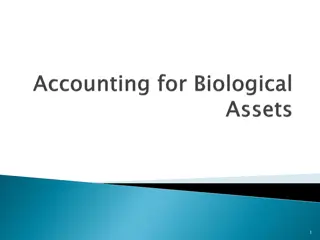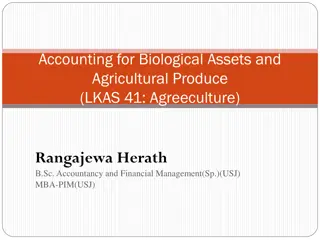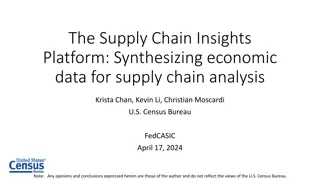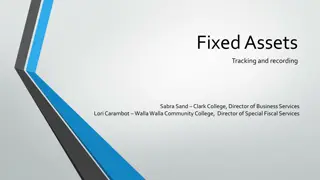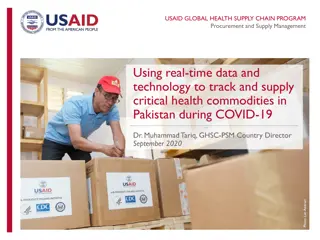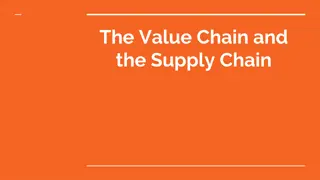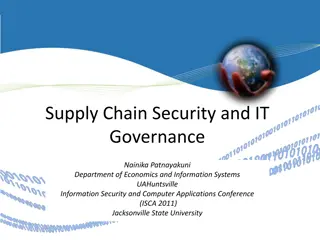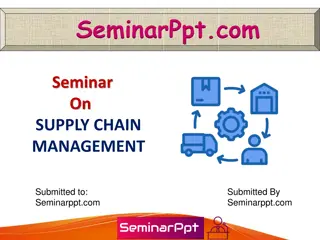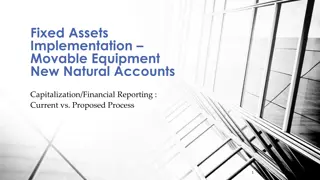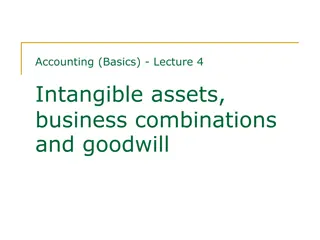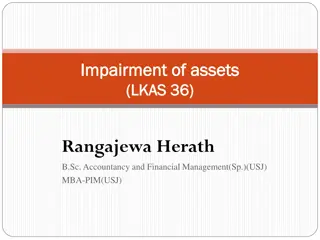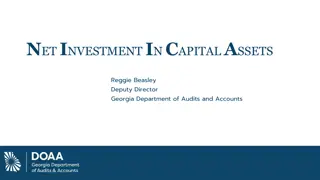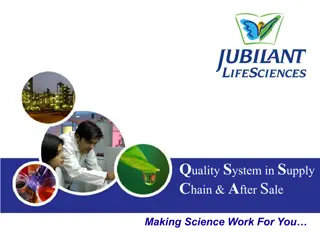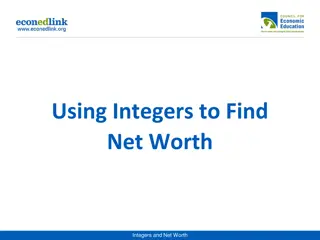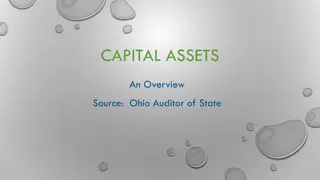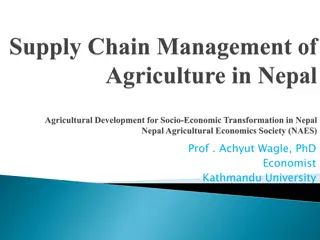Componentisation of Assets: Readiness and Overview for SCOPA June 2023
The readiness of departments and entities within the WCG on the componentisation of assets is discussed along with an overview. Componentisation involves breaking down significant parts of assets into individually identifiable parts with different useful lives. Advantages include accurate tracking o
0 views • 7 slides
Understanding International Inheritance Tax Rules
In the realm of international property and succession law, different legal systems like Common Law and Civil Law govern how inheritance tax applies to individuals with assets in multiple countries. For French residents, navigating French succession tax on worldwide assets is crucial, while non-Frenc
2 views • 27 slides
Understanding Polymer Degradation Processes in Chemistry
Polymer degradation involves a reduction in molecular weight due to various factors like heating, mechanical stresses, radiation, oxygen, and moisture. Two main types of degradation include chain end degradation and random degradation, each affecting the polymer structure differently. Chain end degr
0 views • 12 slides
Overview of Working Capital Management in Financial Management
Working capital management involves strategic decision-making regarding a company's current assets and liabilities to optimize liquidity, profitability, and risk. This process includes understanding working capital concepts, financing current assets, managing liability structure, and maintaining the
1 views • 26 slides
Understanding Independent Branches in Accounting
Independent branches in accounting operate autonomously, making purchases externally, receiving goods from the head office, setting their selling prices, and managing expenses from their own cash flow. They keep complete books, prepare financial statements independently, and may engage in inter-bran
1 views • 10 slides
University of Idaho Asset Management Overview
Asset management at the University of Idaho involves the strategic management of equipment assets to safeguard investments, comply with regulations, and facilitate cost recovery. The objectives focus on enhancing asset monitoring, accuracy of inventory records, personnel training, and adherence to p
0 views • 14 slides
Family Assets for Independence in Minnesota (FAIM) Program Overview
The Family Assets for Independence in Minnesota (FAIM) program helps individuals achieve financial independence through a structured process involving eligibility criteria, opening a savings account, financial coaching, obtaining assets, and closing the account. Eligibility requirements include inco
0 views • 25 slides
Understanding Capital Assets and Financial Reporting
This presentation delves into the world of capital assets, focusing on their categorization, ownership, and reporting in financial statements. Key topics include the distinction between tangible and intangible assets, responsible asset management, and the implications of capital leases on ownership.
0 views • 61 slides
Cybersecurity and Supply Chain Risk Management Best Practices
Supply chain attacks pose a significant threat to software developers and suppliers by targeting source codes and build processes to distribute malware. This article discusses the importance of supply chain risk management, the various attack vectors involved, the industries at risk, and the repercu
0 views • 23 slides
Capital Gains and Assets Overview in Income Tax Law and Accounts
This content provides an overview of capital gains and assets in income tax law and accounts, covering topics such as types of capital assets, assets not considered capital assets, kinds of capital assets (short-term and long-term), transfer year of chargeability, computation of capital gains, and c
0 views • 15 slides
Monitoring of Returned Assets: Abacha's Legacy in Nigeria
International efforts led by civil society in Nigeria and Switzerland have successfully monitored the return of assets linked to the Abacha regime. Initiatives like the Nigerian Network on Stolen Assets and the Conditional Cash Transfer program demonstrate transparency and accountability in handling
0 views • 10 slides
Understanding Free Radical Polymerization Kinetics
This lecture covers the kinetics of free radical polymerization, including initiation, propagation, termination, and kinetic chain length concepts. It explains the calculation of kinetic chain length and chain-transfer reactions. Key points include the rate equations for initiation, propagation, and
0 views • 11 slides
Understanding IAS 39: Financial Instruments Recognition and Measurement
This content provides an overview of an IFRS seminar on IAS 39, focusing on key concepts such as the classification and measurement of financial assets, impairment, reclassification, and more. It covers definitions of financial instruments, financial assets, equity instruments, and financial liabili
1 views • 43 slides
Understanding Liquidation Estate and Key Asset Components
In the process of liquidation, the liquidator forms an estate comprising various assets of the corporate debtor for the benefit of creditors. These assets include ownership rights, tangible and intangible assets, proceeds of liquidation, and more. However, certain assets owned by third parties or he
0 views • 39 slides
University Asset Management Guidelines
University asset management guidelines cover the physical inventory policy, procedures, and fixed asset terminology for safeguarding, tracking, and reporting assets. Departments designate equipment liaisons to manage assets and conduct physical inventories regularly. Assets are categorized as capita
1 views • 21 slides
Rutgers Business School Supply Chain Management Curriculum Overview
Explore Rutgers Business School's innovative Supply Chain Management Curriculum designed for high schools. The curriculum focuses on Project-Based Learning (PBL) and integrates essential elements such as significant content, 21st-century skills, in-depth inquiry, and more. The program is based on th
0 views • 15 slides
A Comparison of ELI and UNIDROIT Principles on Digital Assets
A comparison between the principles of Electronic Liability Initiative (ELI) and the International Institute for the Unification of Private Law (UNIDROIT) regarding digital assets. ELI focuses on security over digital assets, while UNIDROIT covers a broader range, including transfers, custody, and m
0 views • 5 slides
Understanding Equitable Distribution in Florida
Equitable distribution in Florida, governed by statutes 61.075 and 61.076, determines the fair division of marital assets and liabilities in divorce cases. Key considerations include identification, valuation, distribution presumption, and justification for unequal distribution. Assets are classifie
0 views • 28 slides
Introduction to Supply Chain Management
Explore the key components of supply chains, the importance of supply chain management technology, and strategies to overcome challenges. Learn about supply chain visibility, the structure of supply chains, and the three segments - upstream, internal, and downstream. Discover how organizations acces
1 views • 29 slides
Managing Debt and Protecting Client Assets in Victoria
Consumer Action Law Centre in Victoria focuses on assisting low-income clients in managing debt and protecting their assets. The presentation emphasizes assessing the need for debt payment, considering the client's financial position, and exploring options to handle debt where income and assets are
1 views • 29 slides
Understanding Society: Wealth and Assets Survey Research
The Wealth and Assets Survey (WAS) conducted by Oliver Tatum and Angie Osborn at the Understanding Society Research Conference in 2013 focuses on longitudinal issues, experiment design, research findings, and future plans related to the survey. The WAS background includes collecting data on personal
3 views • 28 slides
Accounting for Biological Assets and Agricultural Produce
At the end of this lesson, you will be able to identify the principal issues in accounting for biological assets and agricultural produce at the time of harvest. Topics include the recognition, measurement, presentation, and disclosure of biological assets in financial statements. Questions regardin
0 views • 26 slides
Accounting for Biological Assets and Agricultural Produce (LKAS 41: Agriculture) by Rangajewa Herath
This content provides insights into the accounting standards for biological assets and agricultural produce under LKAS 41, discussing classification, presentation, measurement, gain or loss recognition, and disclosure requirements. It covers the unique nature of biological assets, the scope of LKAS
0 views • 20 slides
Enhancing Supply Chain Insights Through Holistic Data Synthesis
Synthesizing economic data for comprehensive supply chain analysis, this talk by Krista Chan, Kevin Li, and Christian Moscardi from the U.S. Census Bureau discusses the goals, challenges, supply chain interests, data sources, and desired functionalities to present a holistic view of product supply c
0 views • 16 slides
Comprehensive Fixed Assets Management Guidelines for Educational Institutions
Explore a detailed guide on tracking and recording fixed assets in educational institutions, covering key aspects such as capital assets accounting procedures, general ledger accounts, and the definition of capital assets. Learn the minimum standards for valuing assets, recording guidelines, and the
0 views • 25 slides
Utilizing Technology for Efficient Health Supply Chain Management in Pakistan During COVID-19
The USAID Global Health Supply Chain Program has supported Pakistan in leveraging its logistics management information system (LMIS) to efficiently plan and deliver critical COVID-19 supplies. Through coordination with government entities and use of various LMIS interfaces, Pakistan has enhanced dat
0 views • 12 slides
Understanding the Value Chain and Supply Chain Dynamics
The value chain involves adding value through a series of activities from producer to consumer, focusing on meeting consumer demands and gaining a competitive advantage. On the other hand, the supply chain focuses on efficient and cost-effective product distribution to meet consumer needs. The prima
0 views • 10 slides
Enhancing Supply Chain Security and IT Governance: An Overview
This presentation delves into the critical aspects of supply chain security and IT governance, highlighting the synchronization of IT decisions across supply chains, global supply chain concerns, the cost implications of supply chain security lapses, and the need for more research and strategic alig
0 views • 28 slides
Understanding Supply Chain Management: Key Concepts and Processes
Supply chain management (SCM) involves the centralized management of goods and services flow, covering processes from raw materials to final products. By efficiently managing the supply chain, companies can reduce costs and improve product delivery. This seminar presentation explores the definition,
0 views • 24 slides
Proposed Process Improvements for Fixed Assets Management
Implementing Oracle Fixed Assets for managing fixed assets and capital projects, the proposed process aims to streamline capitalization, improve financial reporting controls, and enhance operational efficiencies. By organizing accounts based on asset categories, tracking ownership, and providing det
0 views • 9 slides
Understanding Intangible Assets and Business Combinations in Accounting
In accounting, recognition of intangible assets as assets requires the expectation of future economic benefits flowing to the entity and reliable measurement of the asset's cost. Intangible assets acquired separately are recognized based on their fair value, while those acquired in business combinat
1 views • 23 slides
Understanding Impairment of Assets in Financial Management
Entities must periodically test for impairment to ensure assets are not overstated. An impairment loss occurs when an asset's carrying amount exceeds its recoverable amount. Assets like inventories and deferred tax assets may require testing. Learn when to undertake impairment tests, key indicators,
0 views • 19 slides
Understanding Net Investment in Capital Assets and Its Importance
Net Investment in Capital Assets is a critical component of an entity's financial position, reflecting the value of capital assets owned. It represents the portion of the net position that is not spendable as it is invested in assets. Calculating Net Investment in Capital Assets involves subtracting
1 views • 17 slides
Enhancing Supply Chain Efficiency with Quality Systems
Explore the best practices and methodologies for improving supply chain operations such as planning, sourcing, making, delivering, and returning. Discover key initiatives like E-procurement, bar coding, supplier quality assurance, and green supply chain to elevate functional excellence. Align supply
0 views • 28 slides
Understanding Net Worth: Integers and Financial Assets
Learn about net worth, liabilities, and assets by exploring how integers are used to determine the financial standing of individuals. Discover the concepts of liabilities, responsibilities, and assets through real-life examples of notable personalities. Dive into calculations and understand how net
0 views • 18 slides
China-Africa Supply Chain Cooperation: Challenges and Opportunities
China-Africa Supply Chain Cooperation presents both challenges and opportunities for development. The growth of China-Africa supply chain is crucial, considering Africa's participation in the global supply chain mainly focused on providing primary products. The strategic importance of this relations
0 views • 19 slides
Understanding Capital Assets in Financial Reporting
A capital asset is a long-term asset used in operations with a useful life extending beyond a single reporting period, such as land, buildings, and infrastructure. These assets are reported at historical cost, including ancillary charges. Special assets like works of art or historical treasures are
0 views • 35 slides
Enhancing Nepal's Agricultural Supply Chain for Sustainable Growth
Nepal's agricultural imports, dominated by staples, edible oil, vegetables, fruits, and more, indicate the need to strengthen the agricultural supply chain. Analyzing trade indicators reveals a trade deficit and the importance of optimizing supply chain management. The country's fragmented ASC manag
0 views • 12 slides
Understanding Balance Sheets and Income Statements in Financial Reporting
Balance sheets provide a snapshot of a company's assets, liabilities, and shareholders' equity at a specific point in time, with assets listed on the left and liabilities and equity on the right. Current assets are those expected to be converted into cash within a year, while non-current assets are
0 views • 34 slides
Digital Assets and Social Media Estate Planning
Explore the world of digital assets and social media estate planning presented by Patricia E. Kefalas Dudek & Howard H. Collens. Understand what digital assets entail, the categories they fall into, and how to assist clients in planning for their digital legacies. Learn about the importance of estat
0 views • 56 slides
